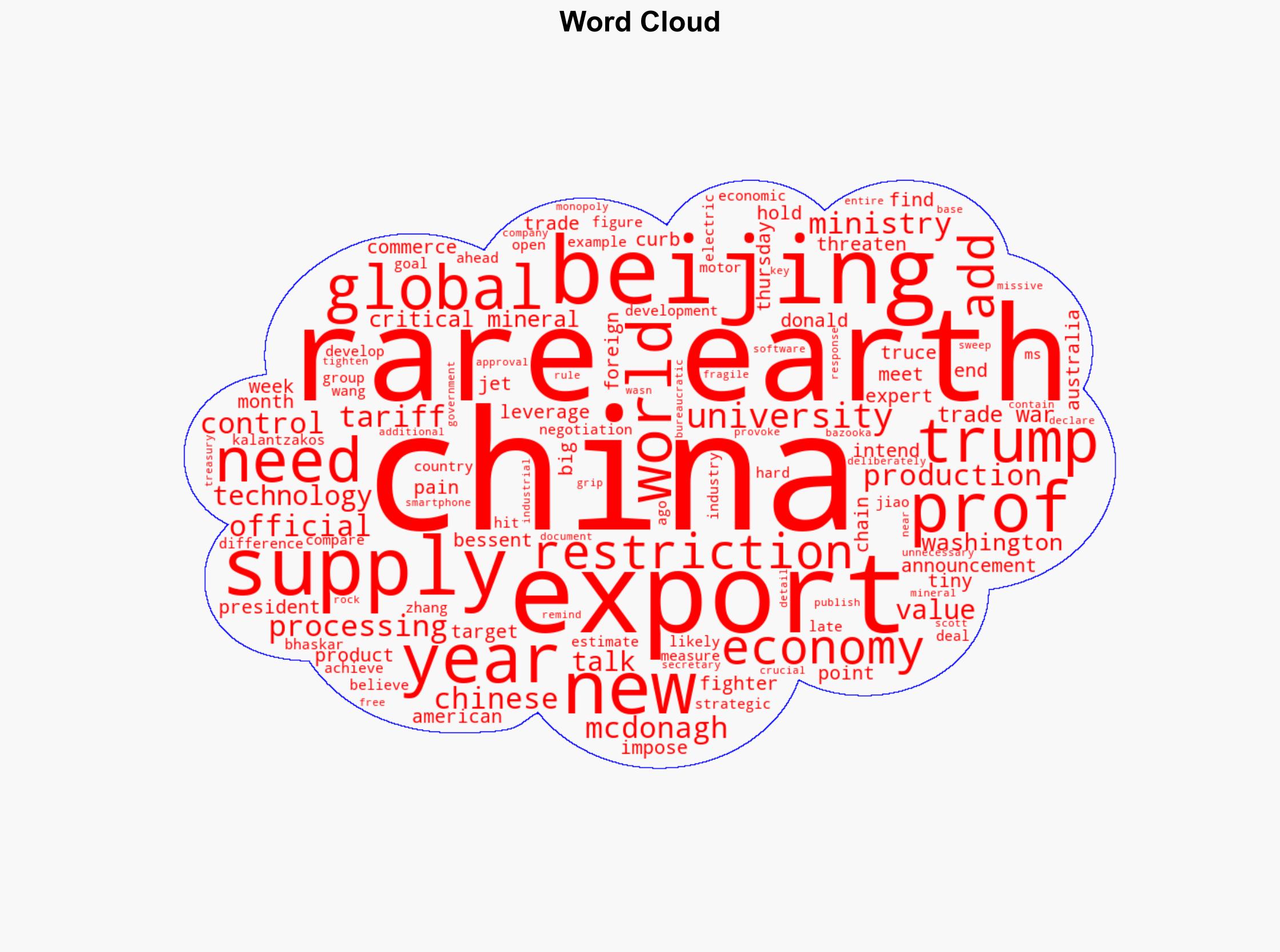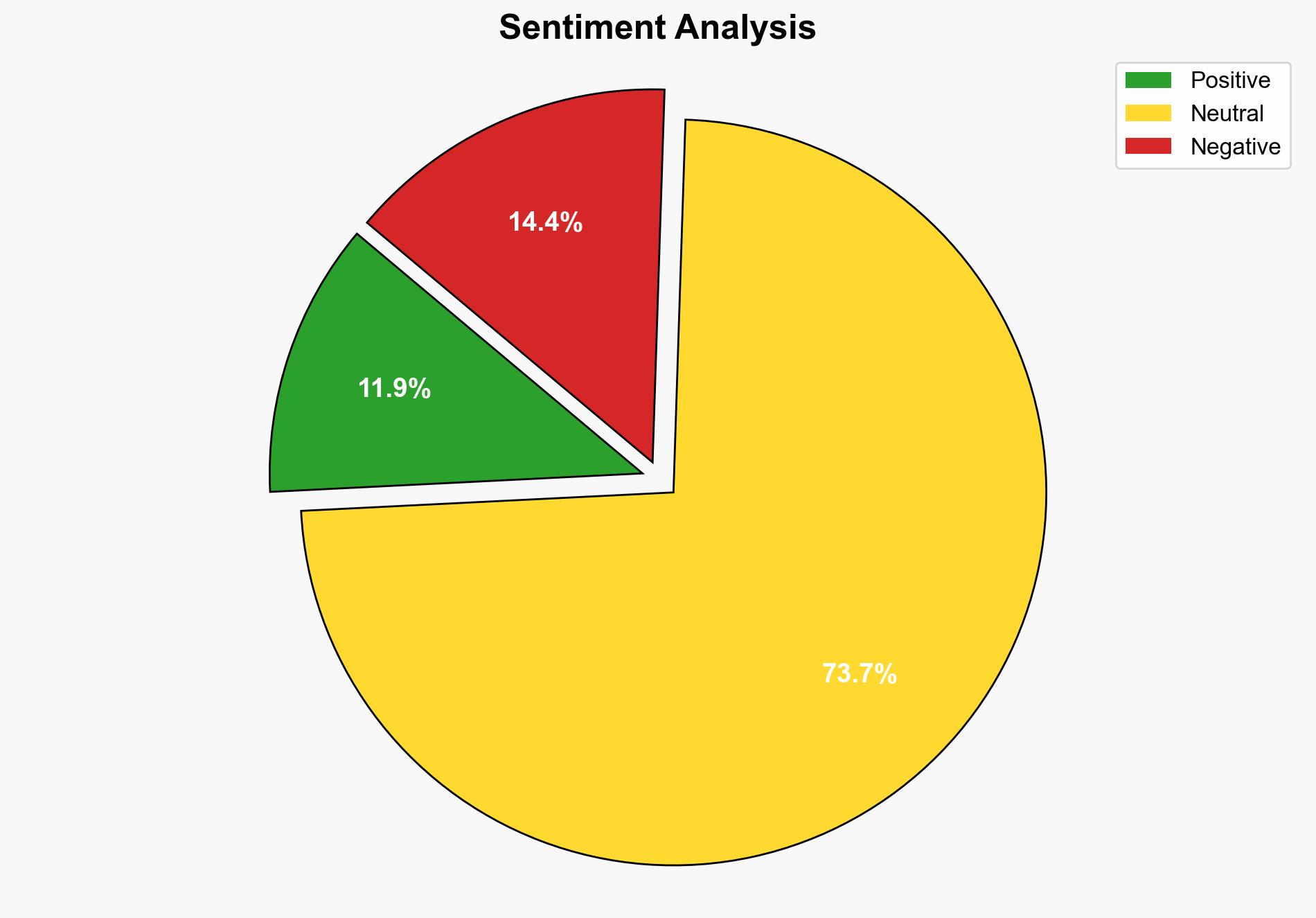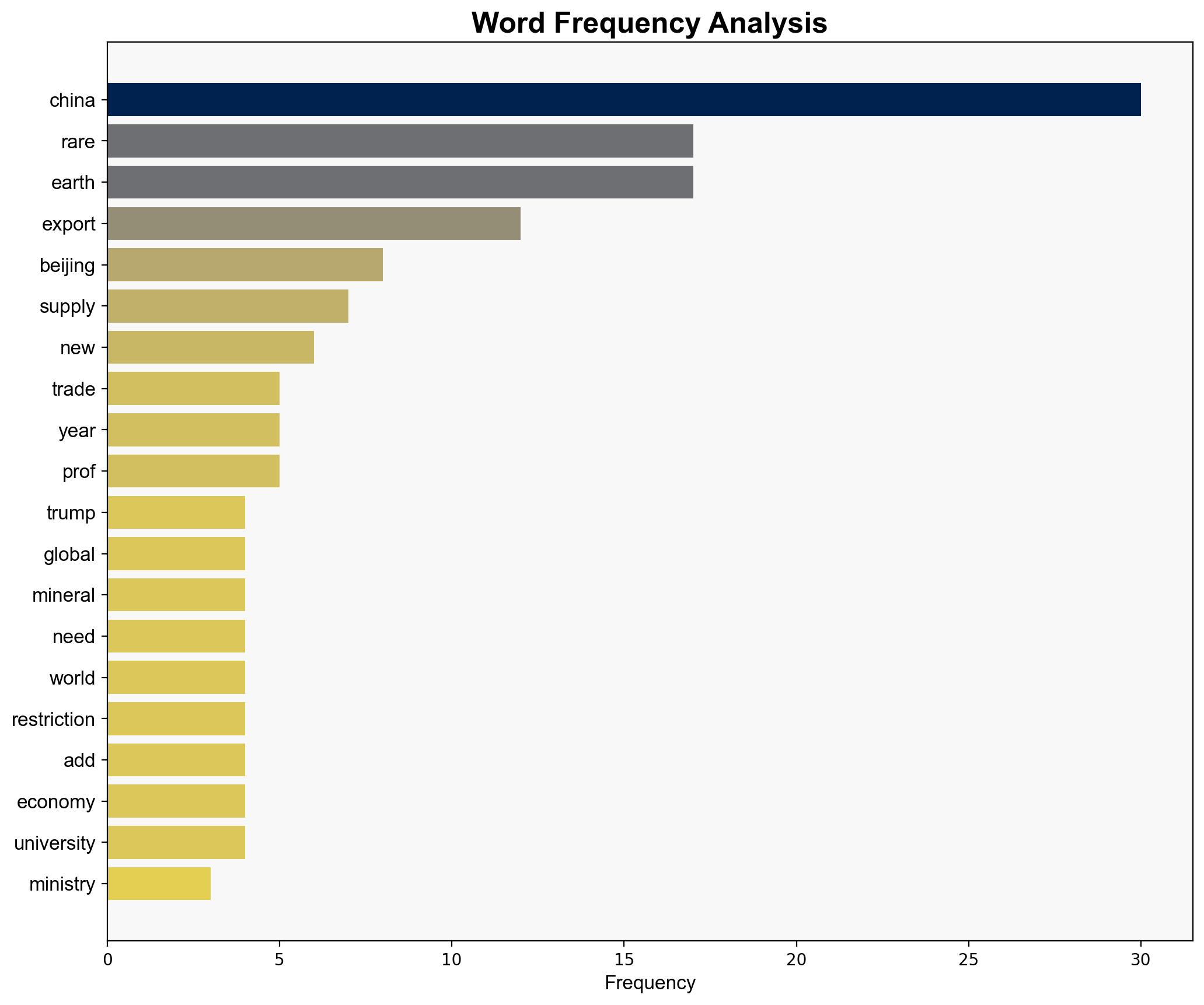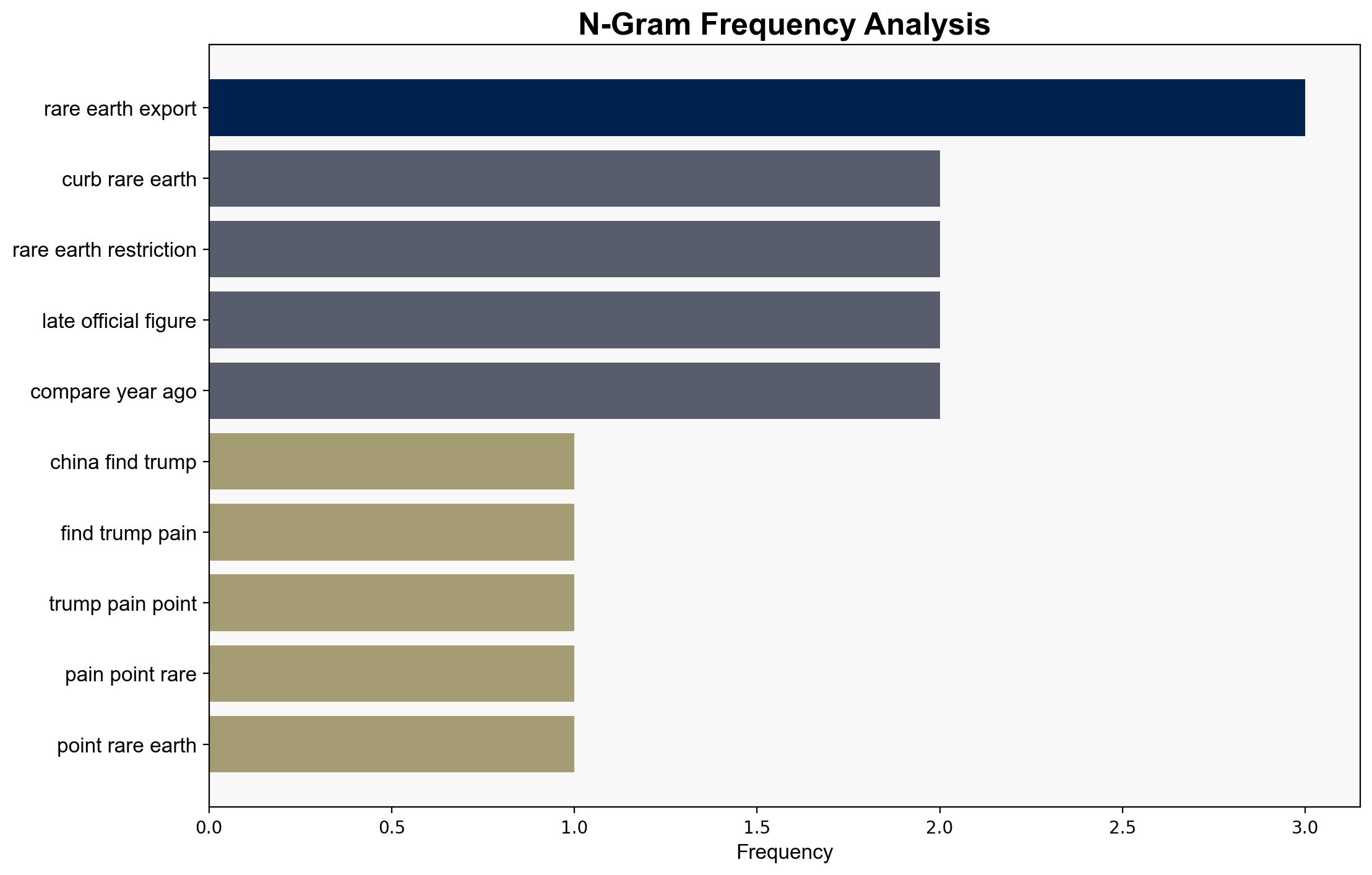China has found Trump’s pain point – rare earths – BBC News
Published on: 2025-10-17
Intelligence Report: China has found Trump’s pain point – rare earths – BBC News
1. BLUF (Bottom Line Up Front)
China’s strategic move to impose restrictions on rare earth exports is a calculated effort to leverage its dominance in the global supply chain against the United States amidst ongoing trade tensions. The most supported hypothesis is that China aims to strengthen its negotiating position by highlighting vulnerabilities in the U.S. supply chain. Confidence Level: High. Recommended action includes diversifying supply sources and accelerating domestic production capabilities.
2. Competing Hypotheses
1. **Hypothesis A**: China is using rare earth export restrictions as a strategic tool to gain leverage in trade negotiations with the U.S. This move is intended to pressure the U.S. by exposing its dependency on Chinese rare earths, thereby strengthening China’s position in upcoming trade talks.
2. **Hypothesis B**: China’s actions are primarily defensive, aimed at safeguarding its own economic interests and technological advancements by controlling the export of critical minerals. This is a response to perceived aggressive U.S. trade policies and tariffs.
Using ACH 2.0, Hypothesis A is better supported due to the timing of the restrictions coinciding with trade negotiations and the explicit mention of targeting U.S. supply chain vulnerabilities.
3. Key Assumptions and Red Flags
– **Assumptions**: It is assumed that China’s primary motivation is economic leverage rather than purely defensive measures. Another assumption is that the U.S. lacks immediate alternatives to Chinese rare earths.
– **Red Flags**: The potential underestimation of China’s capacity to sustain economic pressure if global backlash occurs. The assumption that other countries will not quickly fill the supply gap could be flawed.
– **Blind Spots**: Limited information on the internal Chinese decision-making process and potential undisclosed agreements with other countries.
4. Implications and Strategic Risks
– **Economic**: Prolonged restrictions could disrupt global supply chains, affecting industries reliant on rare earths, such as technology and defense.
– **Geopolitical**: This move could escalate tensions not only with the U.S. but also with other nations dependent on rare earths, potentially leading to a broader coalition against China.
– **Psychological**: The perception of vulnerability in the U.S. supply chain could impact investor confidence and market stability.
5. Recommendations and Outlook
- **Mitigation**: The U.S. should expedite the development of alternative rare earth sources, including domestic production and partnerships with countries like Australia.
- **Exploitation**: Leverage diplomatic channels to negotiate a reduction in restrictions while simultaneously investing in technology to reduce dependency.
- **Scenario Projections**:
– **Best Case**: Successful negotiation leads to lifted restrictions and diversified supply chains.
– **Worst Case**: Prolonged restrictions cause significant economic disruption and geopolitical tensions.
– **Most Likely**: Partial easing of restrictions with ongoing negotiations and gradual diversification efforts.
6. Key Individuals and Entities
– Donald Trump
– Xi Jinping
– Scott Bessent
– Naoise McDonagh
– Marina Zhang
– Sophia Kalantzakos
– Natasha Jha Bhaskar
– Stephen Schwarzman
– Wang Yi
7. Thematic Tags
national security threats, economic leverage, trade negotiations, supply chain vulnerabilities





